5 Leadership Skills That Will Define Executive Success In 2025

Cynthia Pong, JD | Forbes Article The leadership playbook that got us through 2024 won’t be enough for what lies ahead. The pivotal role of adaptability in leadership has been well established, with Harvard Business Publishing’s global survey of nearly 1,300 leadership development professionals confirming what we’ve known or suspected. As we face unprecedented technological and social transformation—that 915 experts predicted in a 2021 Pew Research Center report—a new set of leadership capabilities is emerging as the true currency of executive success. Leaders who have navigated complex organizational environments and managed diverse stakeholder expectations are uniquely positioned for this future. The ability to bridge different perspectives and handle multifaceted challenges is becoming increasingly valuable in tomorrow’s business landscape. Looking ahead, five key leadership capabilities stand out as make-or-break factors for executive success in 2025. Traditional diversity training won’t cut it anymore. The most successful leaders in 2025 will go beyond basic cultural awareness to actively seek out and apply diverse perspectives in their decision-making. Take product development: When teams proactively incorporate feedback from users across different age groups, abilities and cultural backgrounds, they catch potential issues early and build more successful products from the start. Many companies have learned this lesson the hard way—launching products or campaigns that failed in key markets because they missed cultural nuances that diverse teams would have spotted immediately. Those who excel at bridging diverse viewpoints and building inclusive teams will have a distinct advantage in global markets. The days of treating technology, people and processes as separate challenges are over. Consider how a seemingly straightforward decision like adopting a new workplace collaboration platform cascades through an organization. It doesn’t just change how people communicate—it reshapes team dynamics, affects project timelines and blurs work-life boundaries in ways that may not be immediately obvious. Some leaders focus linearly on technical implementation, but those who succeed pay attention to all the ripple effects, especially in hybrid and remote environments where traditional management approaches fall short. The best leaders don’t simply solve problems—they prevent them. This isn’t about having a crystal ball; it’s about developing a sixth sense for subtle warning signs. A COO might notice turnover is ticking up in one department shortly after a new system rollout. While others might dismiss this as coincidence, she digs deeper and discovers that the new workflow created unexpected bottlenecks. By addressing these issues early, she prevents what could have become a downward trend in company-wide morale. Leaders who catch these early signals are often adept at navigating complex organizational dynamics across different roles and contexts. Business strategy and social impact can no longer be separate conversations. Leaders who understand this aren’t only chasing ESG metrics—they’re finding creative ways to solve societal problems through their core business model. A manufacturing CEO who shifts production to sustainable materials while keeping operations local will cut both carbon emissions and shipping costs. This is an example of a leader who recognizes that long-term profitability depends on serving broader societal needs. The most successful executives in 2025 will be those who can spot these opportunities to align business growth with meaningful impact. Today’s leaders face a more complex web of relationships than ever before. Beyond keeping employees, customers and investors happy, effective leaders understand how decisions impact each group differently. Take data privacy: When implementing new security measures, savvy leaders consider how to protect customer information while addressing employee concerns about workplace monitoring. They communicate transparently with regulators while maintaining investor confidence. Those who can anticipate and address these interconnected needs—often drawing on past experience managing multiple stakeholder groups—will have a distinct advantage in 2025’s business landscape. The key to cultivating these capabilities isn’t simply developing new skills—it’s recognizing and amplifying the strengths you’ve already built through your unique experiences. The most effective leaders will be those who can translate their range of professional experience into recognized and demonstrable leadership strengths. As you plan your leadership development for 2025, focus on how your specific background and experiences can enhance these critical capabilities. The future of leadership will require exactly the kind of adaptability, insight and inclusive thinking that comes from navigating complex workplace environments.1. Build Inclusive Teams That Drive Innovation
2. Connect The Dots Between Tech And Team Performance
3. Spot Problems Before They Become Crises
4. Align Business Growth With Social Impact
5. Navigate Complex Stakeholder Relationships
More About Park Avenue Group
Discover how Park Avenue Group rises above the competition, delivering unparalleled solutions and top-tier candidates that allow your business to succeed.
